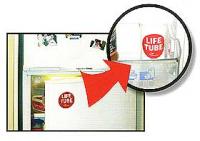Preparing your financial survival kit
 Natural disasters are unpredictable and in many cases can be life changing for those caught up in them. The recent earthquakes in Christchurch have got many Kiwis talking about and actively putting their survival plans in place.
Natural disasters are unpredictable and in many cases can be life changing for those caught up in them. The recent earthquakes in Christchurch have got many Kiwis talking about and actively putting their survival plans in place.
Whilst the main emphasis should be placed on preparing for the immediate survival of your family from a natural disaster, for example meeting points, food and water, we shouldn't overlook the financial needs and possible financial issues that will arise as soon as you've established your loved ones are ok.
Consider that banks could be disrupted, limiting access to cash. Government assistance, insurance, and other financial relief (which may or may not cover your total loss) may not return you to the financial position you have previously enjoyed.
Ultimately, you'll remain responsible for most if not all of your debts and other financial obligations, and as soon as disaster hits, you'll start to feel the pressure. However, it won't hurt as much if you are prepared.
Consider the following tips to help manage your financial situation:
- Make copies of important records and documents, and keep them in a secure place, preferably away from your home and out of your immediate area. Items should include credit card numbers, insurance policies, financial records, tax records, loan and mortgage documents, deeds and titles, wills and trusts, prescriptions and medical records, emergency contact lists.
- Some experts suggest using technology, such as digital images to record your financial profile. Combine these images with the documents above, scan them, and store them online e.g. using 'Cloud Space' (online data backup accessible anywhere in the world) or a USB Flash Drive which you could use to store your data and then give to family or friends out of town for safe keeping.
- Compile and maintain a one-page financial contacts list. This list should include the phone numbers of companies you may need to contact, as well as your account numbers. Include numbers for your bank, insurer, mortgage lender, consumer credit lender, investment companies, lawyer, accountant and anything else you can think of.
- Maintain a fireproof and waterproof lockable box or container with important recent financial documents you can quickly grab should you have to flee. Include recent bank credit card and investment account statements; your key financial contacts list; tax returns; mortgage and insurance information; and a supply of cash.
- Ensure you have access to cash. Carry your EFTPOS and credit card with you at all times. Build an emergency balance in your check or savings account that you can tap into if a crisis hits. Consider applying now for an emergency line of credit; for example a revolving credit facility on your mortgage or an overdraft on your check account – the idea being that you only access these funds in an emergency. Just make sure you don't incur any fees on this service while you are not using it.
- Review in depth your home owner's or renter's (i.e. contents) insurance policy with your insurer. Ensure you understand every clause in your basic and/or special insurance policies and what the outcomes would be if you needed to claim on these policies. If you are in certain high risk areas, consider adding flood or earthquake insurance. Don't overlook special coverage necessary for computers, home offices, jewellery, artwork or other expensive items not included in your basic insurance policy.
- Have spare keys cut and stored away.
Most importantly – get started today.
This article is based on 'Preparing A Financial Survival Kit' by Broderick Perkins
- Last updated on .